

Brain training games promise to improve your memory, prevent cognitive losses and decrease your chances of showing symptoms of dementia – are their promises too good to be true?
Video games have become so much more than a way to pass time – they’re used as simulations for teaching and training, tests of attention and skill, and even as diagnostic tools.
Recently, many online cognitive training platforms such as Lumosity have claimed that their “brain training” video games can help to slow symptoms of neurodegenerative diseases like Alzheimer’s disease, which currently have no cure. Unfortunately, the reality is a little more complicated than Lumosity’s advertisements would suggest.
Brain training games base their promises on two theories – the theory of neuroplasticity, and the theory of cognitive reserve.
Neuroplasticity is the process of the brain modifying its pathways as it learns new things. Originally, scientists thought that this process only occurred in childhood, but a breakthrough study by Draganski et al. in 2004 demonstrated that adults learning a new task (in this case, juggling) developed new, longterm physical changes in their brain’s composition.
This breakthrough was huge for neuroscience, because it showed that adults can modify the structure of their brain even after it has matured.
Further studies have shown that these structural changes can even occur in adults diagnosed with Mild Cognitive Impairment — a high risk factor for the development of dementia.
The theory of cognitive reserve goes hand-in-hand with neuroplasticity. This theory proposes that life experiences, cognitive activities, and unique skill sets can allow your brain to compensate for the structural changes that come with aging and dementia by building new pathways.
Essentially, cognitive reserve is the “use it or lose it” theory – the more you use your brain, the more pathways it builds through neuroplasticity, and the longer it will take for you to show symptoms of cognitive decline or dementia.
Brain training games come in all shapes and sizes.
While Lumosity is one of the best known companies in its industry, there are innumerable apps, video games, and websites available that are dedicated to brain training.
There is some variation between companies, but brain training games feature simple controls and design that allow the player to focus on a single cognitive skill such as memory, attention, processing speed, or problem solving. The games increase in difficulty over time.
The games are offered as “training programs” that are intended to be completed daily, and these programs may be individualized to some degree.
Competition in brain training games is usually limited to competition against yourself — trying to improve your score in individual games, or an overall “brain health” score calculated at ongoing intervals which may offer comparisons to others that are of your age and education level.
While the games are simple and are targeted for non-gaming adults, they can be incredibly frustrating — there is no doubt that they require focus and concentration to complete them quickly and accurately, and it can be addicting to watch your score improve while unlocking new levels.
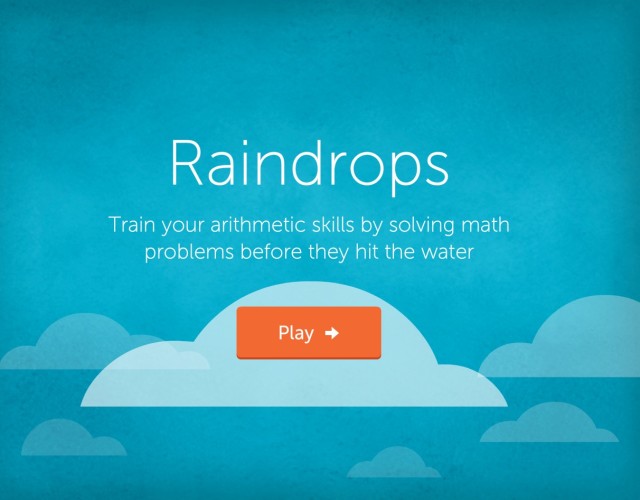
To summarize, thanks to neuroscience, we know two things:
And, thanks to the research that has gone into the development of brain training games we know that they:
Looking at these facts, it seems hard to believe that brain training games don’t accomplish everything that they say they can – but unbiased research shows that there are some areas where they definitely don’t measure up.
In fact, the Stanford Centre of Longevity released a statement written by cognitive psychologists and neuroscientists that referred to the claims made by brain training websites as “exaggerated and misleading” — a statement that definitely should not be taken lightly.
“[…] exaggerated and misleading claims exploit the anxiety of adults facing old age for commercial purposes. Perhaps the most pernicious claim, devoid of any scientifically credible evidence, is that brain games prevent or reverse Alzheimer’s disease.”
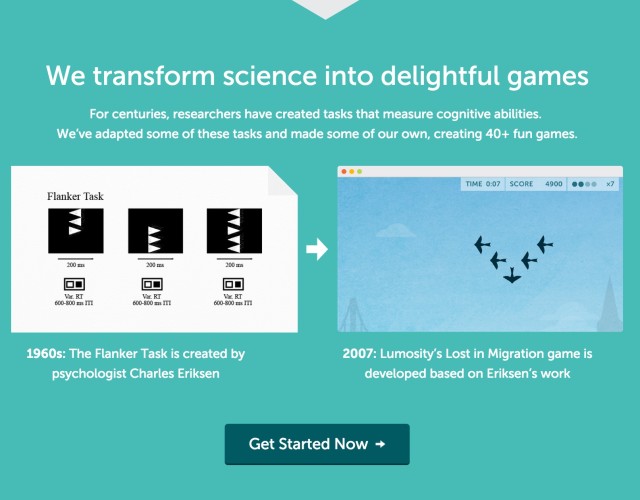
Lumosity boasts that it has 70 million members, many of whom are paying a monthly subscription fee to access their full library of brain training games – a practice shared by most other brain training services.
For this reason, it’s imperative that users understand what they are (and aren’t) getting from the time and money they spend on brain training.
The best way to explain brain training games like Lumosity is that they are essentially an answer key for cognitive tests.
You will definitely improve in your ability to play the brain training games (as you would with any other video game), and your test scores will likely improve (because the brain training games are correlated to questions commonly used in cognitive tests).
However, many unbiased studies have shown that it is unlikely that the time you spend playing brain training games will actually enable you to use your brain in the ways that you want to use it in your daily life.
Essentially, brain training games only train your brain to play the games — they do not train your brain for the problems that it will encounter in real life, and studies agree that it is unlikely that they actually contribute towards your cognitive reserve.
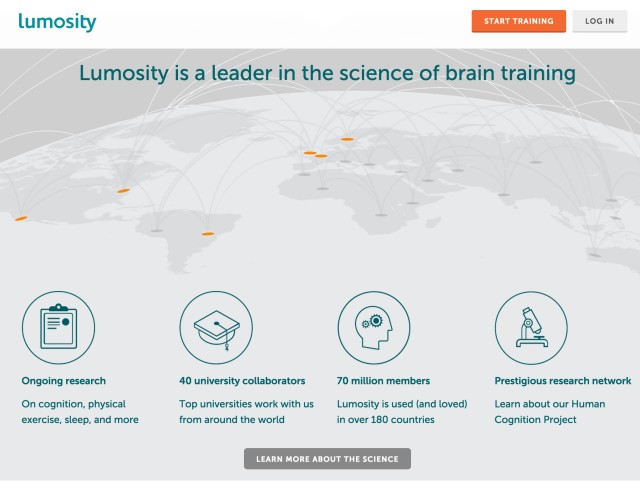
Over the past couple of years, Lumosity has toned down a lot of the language that they use concerning their brain training games. They may not be making explicitly false promises, but their insinuations are still pretty misleading.
While their homepage points to scientific studies and PhD’s, it’s important to remember that many of these studies and individuals are funded by Lumosity — greatly increasing the likelihood that a positive end result will be reported.
When all of the literature is examined, there just isn’t the support that Lumosity claims there is. Lumosity’s games are great in theory, but they have failed to demonstrate any incredible positive effects when examined by outside sources.
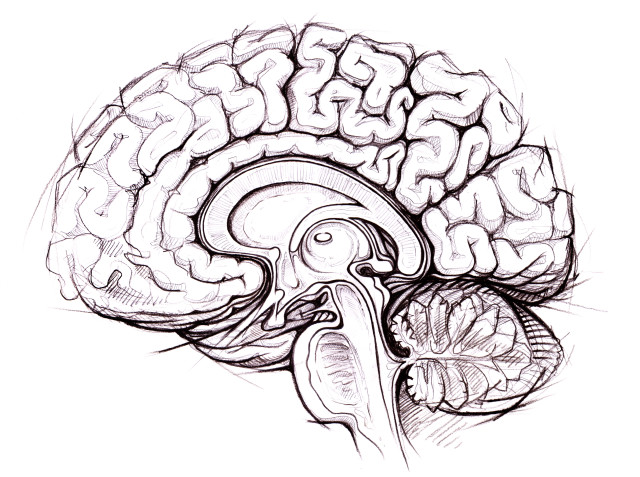
The take-away from this article shouldn’t be that video games will never be able to help prevent age-related cognitive decline and memory loss, nor should it be that time spent on Lumosity or similar websites is time wasted.
As we mentioned above, the logic for brain training games is THERE, and there is research to support the general idea of computerized brain training games. However, in its current state we just aren’t quite able to achieve the results that we want.
In fact, a 2014 study by Shute, Ventura and Ke showed that participants who played Portal 2 (a video game that makes use of strategy and puzzles but isn’t focused on cognitive training) was far more effective than Lumosity in improving students’ performance on measures of problem solving, spatial skills, and persistence.
The real truth of the matter is that this is one of the research areas that could change the world – but there is so much more research and innovation required in this area before that can happen.
While Lumosity may not be providing its users with protective gains in cognitive reserve, it is collecting tons of data about how users interact with brain training game and their efficacy (to a point). This data will be invaluable to game designers and neuroscientists moving forwards.
I fully believe that in the future there will be incredible, immersive video games that do allow users to learn new skills, improve their problem solving, and slow cognitive decline – but the research isn’t there to support the brain training platforms that are available right now.
Go for a walk. Learn a new language. Eat a balanced diet. Meet new people. Take up a new hobby. All of these pastimes are great, scientifically supported, ways to keep your brain active, reduce risk factors of developing dementia, and create cognitive reserve.
If you enjoy the games on Lumosity and the challenges that they offer there is no reason to stop playing the games — it’s just important that you don’t think playing twenty minutes of basic video games five times a week is enough targeted cognitive intervention to truly decrease your risk of developing symptoms of dementia or to improve your overall cognitive abilities outside of your skills in-game.
Improving brain health has been a hot topic in the news lately, so we ask you — Do you have a Lumosity membership? What do you think the future holds for interactions between neuroscience and video games?
Image Credit: Human Brain Sagittal View via. Shutterstock

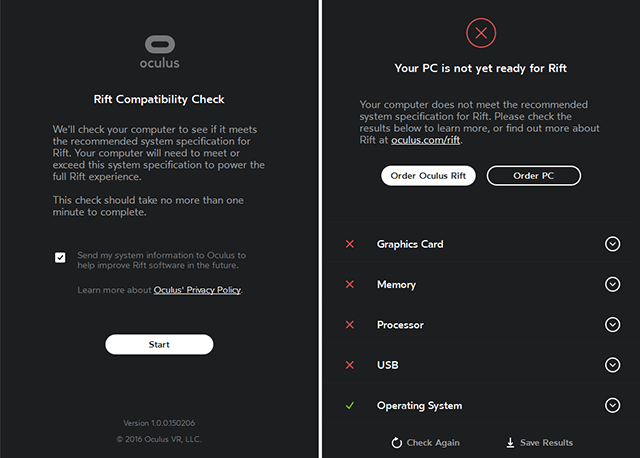

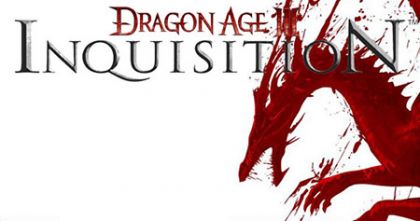
 Bloodborne: The Old Hunters - How to Get the Whirligig Saw
Bloodborne: The Old Hunters - How to Get the Whirligig Saw Dark Souls 2 Weapons and Shields Guide Bows, Greatbows and Crossbows
Dark Souls 2 Weapons and Shields Guide Bows, Greatbows and Crossbows Make money (GMP currency) in MGS 5 - The Phantom Pain
Make money (GMP currency) in MGS 5 - The Phantom Pain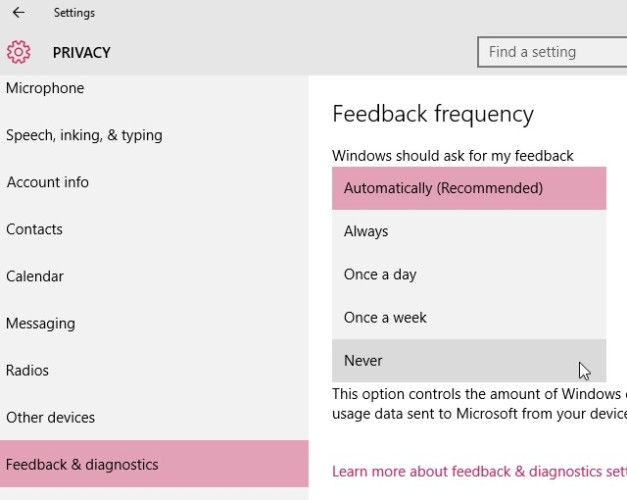 How to Close the Windows Feedback Notification for Good
How to Close the Windows Feedback Notification for Good Destiny Beginners' Guide: How to Level up to 32 Fast
Destiny Beginners' Guide: How to Level up to 32 Fast